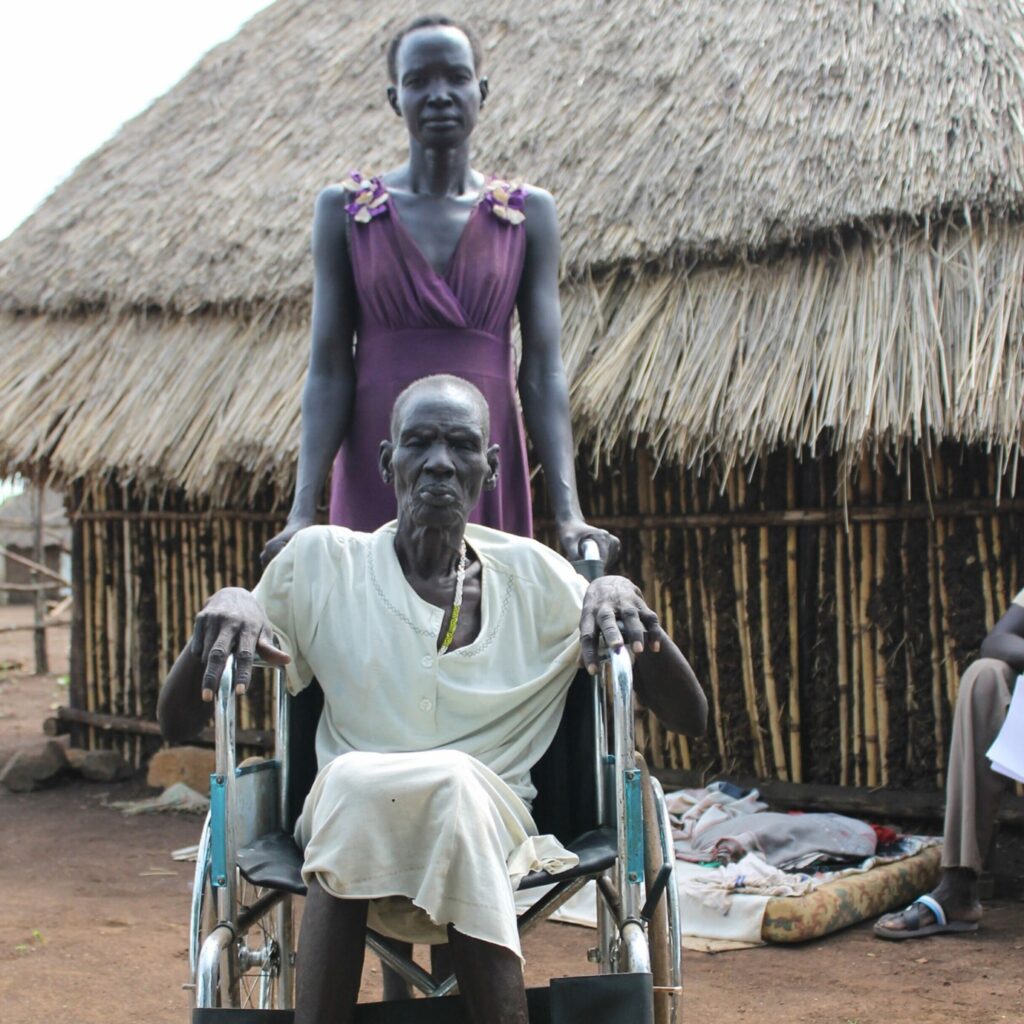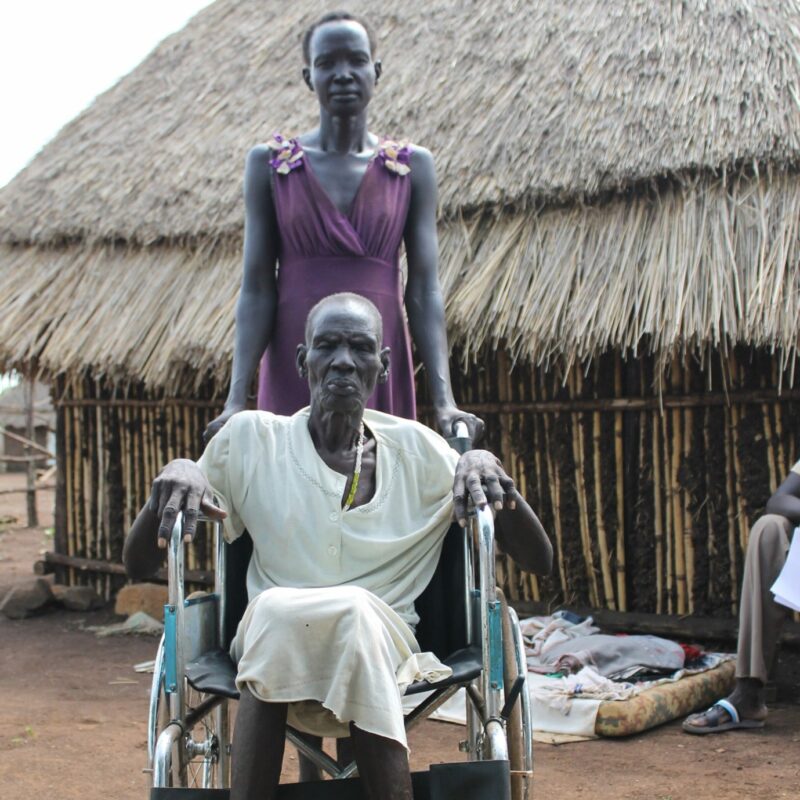In February 2022, the Global Disability Summit convened for the second time, aiming to amplify and support organisations of persons with disabilities from the Global South to mobilise and monitor commitments to disability-inclusive development, and to engage with evidence on best practice. Commitments were made to strengthen disability inclusion in crisis and humanitarian contexts. Against this background of new and reaffirmed commitments, there is a need to reflect on the empirical evidence on disability inclusion in humanitarian and displacement contexts, to ensure lessons are learned and key gaps are filled in future research, policy and practice.
In light of this, the Research and Evidence Facility commissioned a rapid review of existing evidence on disability inclusion for refugees in Ethiopia, focusing on the experiences, protection needs, barriers and opportunities to providing protection. The study considered existing empirical studies as well as 10 in person interviews with staff from humanitarian organisations, government, and disability-focused civil society organisations from camps in Gambella and Benishangul Gumz regional states. Three refugees with disabilities, one from Gambella and two from Benishagul Gumz refugee camps, were also interviewed.

This rapid review revealed that attitudinal, individual, institutional, and environmental barriers shape diverse experiences for displaced persons with disabilities in Ethiopia:
Most respondents expressed that there are negative attitudes and social stigma towards persons with disabilities,and these attitudinal barriers also intersect with other attitudes about age and gender roles. Attitudinal barriers were identified amongst community members and staff.
In terms of individual barriers, this study revealed a hierarchy in service provision for refugees with disabilities in Ethiopia, with persons with physical disabilities benefiting more readily than those with less visible types of disability. Age and gender also shape different experiences, with children and older women facing particular challenges.
Limited funding and human resources are the major institutional barriers to providing satisfactory services for refugees with disabilities. Most organisations interviewed did not include allocations for disability mainstreaming in their line budgets, so while regional, country, and organisational level policies and frameworks may exist, these are not fully implemented. Some donors and international funding organisations failed to keep their pledges to support the Ethiopian government to fully implement the revised 2019 Refugee Proclamation.
Environmental barriers differ between camp and urban contexts, however in both, refugees with disabilities in Ethiopia are constrained from participating fully in their communities.
‘The refugee camp is in rural area with harsh weather condition…It is extremely humid…. sitting on wheelchair for long time burned my back. It is very difficult to move around using wheelchair. In addition, the physical environment is not straight and flat to easily move round using wheelchair. I am sometimes trapped in ditches.’
Refugee with physical impairment from Jewi camp, Gambella, Ethiopia
The above barriers and protection risks paint a grim picture on the experience of refugees with disabilities but there is still room for greater inclusion of refugees with disabilities within displacement-affected communities in Ethiopia. The existing and newly emerging refugee laws and policy frameworks, the UN Convention on the Rights of Persons with Disabilities ratified by Ethiopia, and the Comprehensive Refugee Response Framework, are all opportunities to improve inclusion of refugees with disabilities in Ethiopia. In order to build on these opportunities, the report makes several targeted recommendations for government, policy and programmes. Key recommendations include:
- There are almost no disaggregated data on refugees with disabilities in Ethiopia. Thus all humanitarian organisations should train their staff about Washington Group data collection tools, and collect and analyse data on the number of refugees with disabilities in their respective refugee settings, using disaggregation according to gender, age, ethnicity and disability type.
- Nothing about us without us: Persons with disabilities must be involved in designing, delivering and evaluating programmes and humanitarian interventions. Disability budgeting should be introduced in humanitarian programmes to ensure that all assistance is accessible to people living with disabilities.
- Training and capacity building is needed for humanitarian, policy and programmes staff on how best to include refugees with disabilities in mainstream programmes and in existing international and national polices and legal frameworks such as UNCRPD and the Sustainable Development Goals.
- Capacity-building training on their rights and existing policy frameworks is needed for refugees with disabilities and their representative organisations (OPDs).
- Advocacy to increase awareness and understanding within humanitarian organisations, government departments, civil society and the population at large about the needs and capabilities of persons living with disabilities and the needs of refugees with disabilities should be promoted.
- The international community needs to provide aid specifically for refugees with disabilities in order to build more accessible camps (where camps are unavoidable) and to help refugees move into community settings where feasible, with adequate support. As part of this support, it is advisable to strengthen the out-of-camp programme (OCP) for refugees currently being piloted in Ethiopia.
- Future research priorities: There is a significant lack of empirical information about internally displaced persons living with disabilities in Ethiopia. It is strongly recommended that a comprehensive study on the lived experiences of internally displaced persons (IDPs) with disabilities in the country be undertaken. Moreover, rigorous studies should be specifically conducted on refugee women with disabilities, as this segment of the refugee community is more susceptible to triple discrimination on the basis of being women, persons with disabilities and among the poorest of the poor.
Photo: HelpAge Ethiopia
